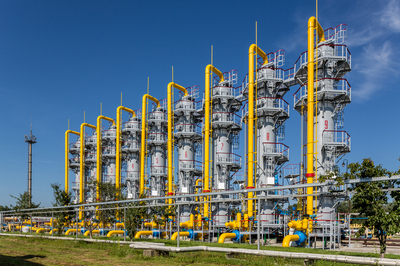The Ukrainian Gas TSO offers international partners to consider the involvement of its gas infrastructure when planning gas supply operations: not bypassing but continuing working with Ukraine. The issues of support for Ukraine, as well as the results of the year and plans for the future, were discussed at the final meeting of the SEEGAS Joint Steering Committee on Interregional Cooperation for the Development of the Integrated Gas Market of South-Eastern and Eastern Europe (SEEGAS).
To further strengthen the security of gas supplies in the region and maximize the use of Ukraine’s gas infrastructure, in particular strategically crucial underground gas storage facilities for Europe and gas transmission system capacities, representatives of GTSOU noted the need for a long-term increase in firm gas imports capacities at the borders with Poland, Slovakia, and Hungary.
The Ukrainian TSO also focused on the issue of harmonization of gas quality requirements in the countries of South-Eastern Europe. The differences in the requirements for the gas composition are enshrined at the regulatory level. They are also reflected in the agreements on cooperation between adjacent TSOs, impeding the full use of the regional gas infrastructure.
Another critical issue in the context of strengthening the energy security of Central and Eastern Europe during the meeting was the use of the Trans-Balkan route with the possibility of storing gas in Ukrainian gas storage facilities. For this purpose, regulating the case of virtual reverse flow at the Ukrainian IP on the legislative level in Moldova is necessary. Currently, this possibility is partially implemented.
“We thank our international partners for their support and cooperation. By opening new opportunities for the existing gas infrastructure, we make a joint investment in strengthening the region’s energy security, not only Ukraine. All the agreements on increasing capacities during the war were vital. Still, they were also used by customers from neighboring countries for their own needs, particularly for the temporary storage of gas in Ukrainian storage facilities or transit between neighboring countries with short-haul service. We plan to strengthen further cooperation with Poland, Slovakia, Romania, Hungary, and Moldova to provide new opportunities for customers,” says Olga Bielkova, Director of Government and International Affairs of GTSOU.
